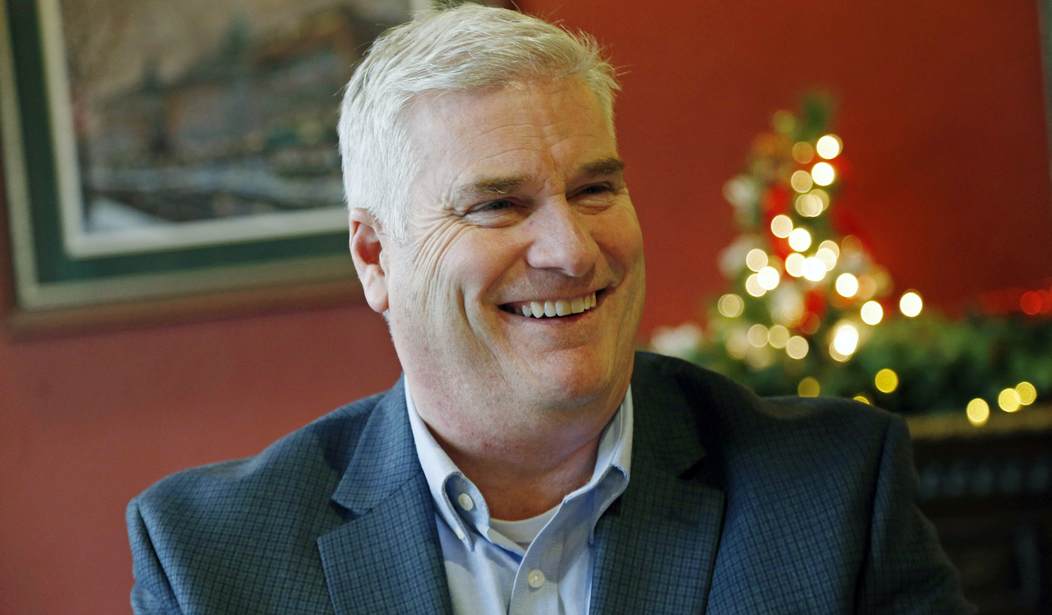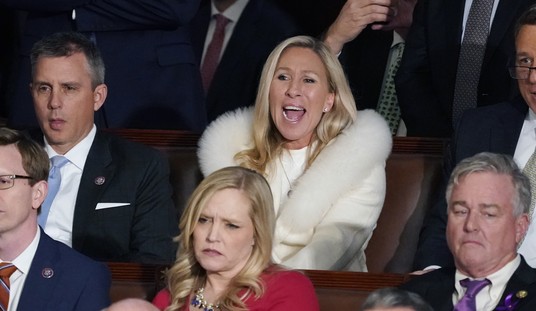The toxicity of the Republican caucus in the House may have reached its zenith, but don’t bet on it. After Rep. Steve Scalise bowed out of the race for speaker when it became clear he would never get the 217 Republican votes needed to win, the mega-factionalized GOP found itself in a deep hole.
The obvious choice is Scalise’s rival for the speakership, Ohio’s Jim Jordan. But some of the less conservative members of the caucus can’t abide Jordan’s hard right ideology. As a first choice for speaker in the recently concluded vote, Scalise won 113 votes while Jordan came in second with 88. That’s an awful long way from 217, and Jordan has ruffled enough feathers among moderates to make any effort by him to reach 217 almost as problematic as Scalise’s.
But the world and the country are in crisis. And many of those centrist Republicans who can’t abide Jordan may swallow hard and vote for him anyway just to get a warm body in the speaker’s chair.
Rep. Erin Houchin, a member of the moderate member of the GOP Main Street Caucus, is one of those centrists. She delivered the nominating speech for Jordan during the Wednesday meeting of the Caucus.
She is part of a group of lawmakers who view themselves as pragmatic centrists, but who are now lining up behind Mr. Jordan, whose right-wing bent, combative style and close alliance with former President Donald J. Trump have little in common with them.
Representative Kelly Armstrong of North Dakota, another center-leaning Republican, has also publicly backed Mr. Jordan. (Mr. Armstrong serves with Mr. Jordan on the Oversight and Judiciary committees and considers him a close friend.)
Dusty Johnson of South Dakota, the chairman of the Main Street Caucus, and Stephanie Bice of Oklahoma, the vice-chair of the group, have not publicly said who they are backing. But they pushed unsuccessfully for a rule change that would have made it more difficult for Representative Steve Scalise of Louisiana, the No. 2 House Republican who is viewed as the more traditional choice to succeed Mr. McCarthy, to prevail over Mr. Jordan in the race.
That’s all well and good, except it only takes four of the moderates to say “no” to sink Jordan’s nomination. And that’s the problem for Republicans going forward: there’s no one else with the stature or standing to get the 217 votes necessary to win the speakership.
No one obvious, anyway. That’s why one of two things is going to happen; either someone outside the current GOP leadership will win or Scalise, Jordan, or even ex-speaker Kevin McCarthy will triumph — but only after the caucus is hopelessly deadlocked on other candidates.
Two dark-horse candidates for the job are going to be mentioned during the Caucus on Friday. Majority Whip Tom Emmer of Minnesota says he wants the majority leader job if Scalise were to be elected. But he also hinted he was interested in the speaker’s job as a fallback position.
Emmer has few enemies but has never demonstrated the talent to wrangle the fractious GOP caucus. Conservatives tried to block his rise to the whip spot because he was seen as insufficiently ideological. And other Republicans blame him for the 2022 mid-term debacle.
“Tom Emmer underperformed what should have been a red wave year by barely winning the majority,” the GOP lawmaker said. “Tailwinds couldn’t have been better for us.”
Another possible choice is North Carolina Republican Patrick McHenry, who is currently serving as interim speaker while the GOP tries to get its act together. McHenry has said he doesn’t want the job, but there’s a move afoot among some of the moderates to expand the interim speaker’s responsibilities in order to allow the business of the House to start moving again.
Also for our VIPs: The House GOP Must Elect a Speaker Quickly and Without Drama
Currently, no bills can be brought to the floor or referred to committee. That’s a job reserved for the elected speaker. Some moderate members of the GOP Caucus want to empower McHenry until a new speaker is elected.
But Democrats quickly put the kibosh on that idea.
“As can be seen in the plain text of the rule, the acting Speaker pro tempore is provided the authority to do only what is ‘necessary and appropriate’ to the end of the election of a new Speaker,” Democrats wrote in the memo.
“The rule contemplates the election of a Speaker pro tempore instead of a Speaker in the event the House cannot quickly elect a Speaker, an unnecessary provision if the acting Speaker pro tempore had the power to oversee the House’s regular business,” Democrats wrote.
McHenry is not going to be given expanded powers. So, for the moment, Congress is frozen solid with no thaw in sight.










